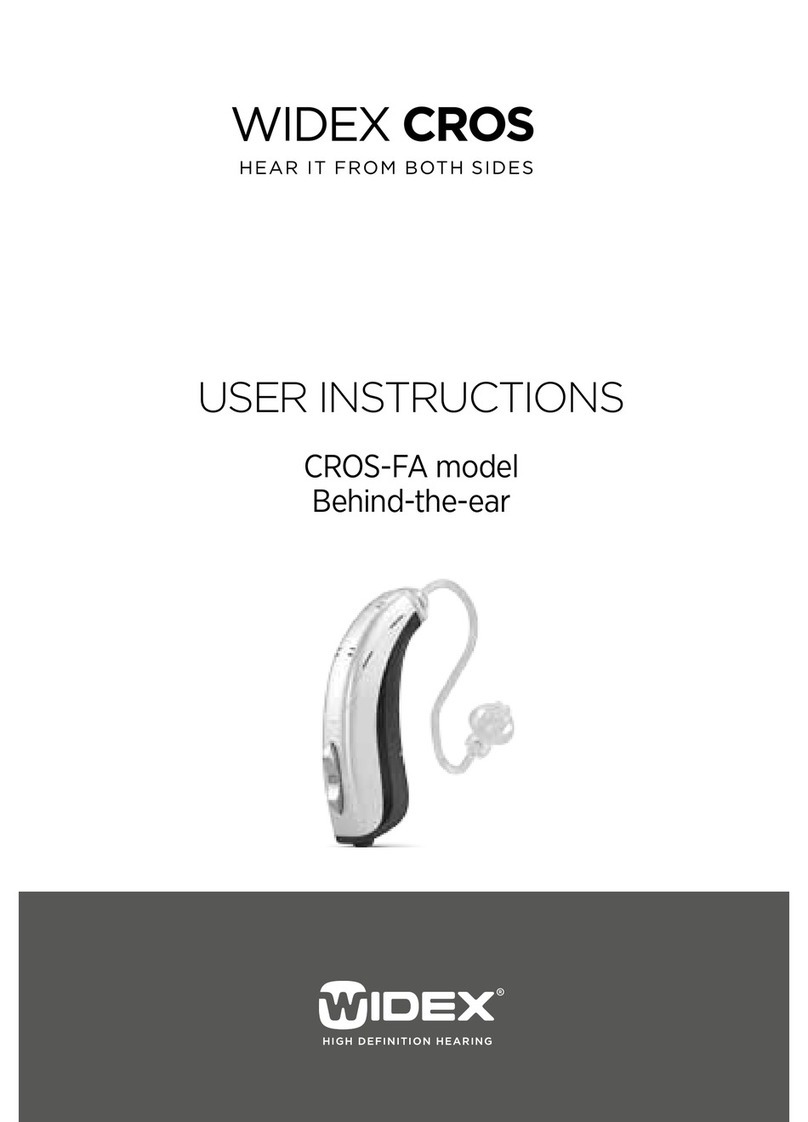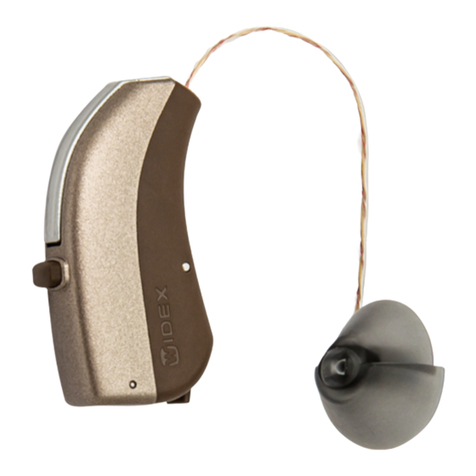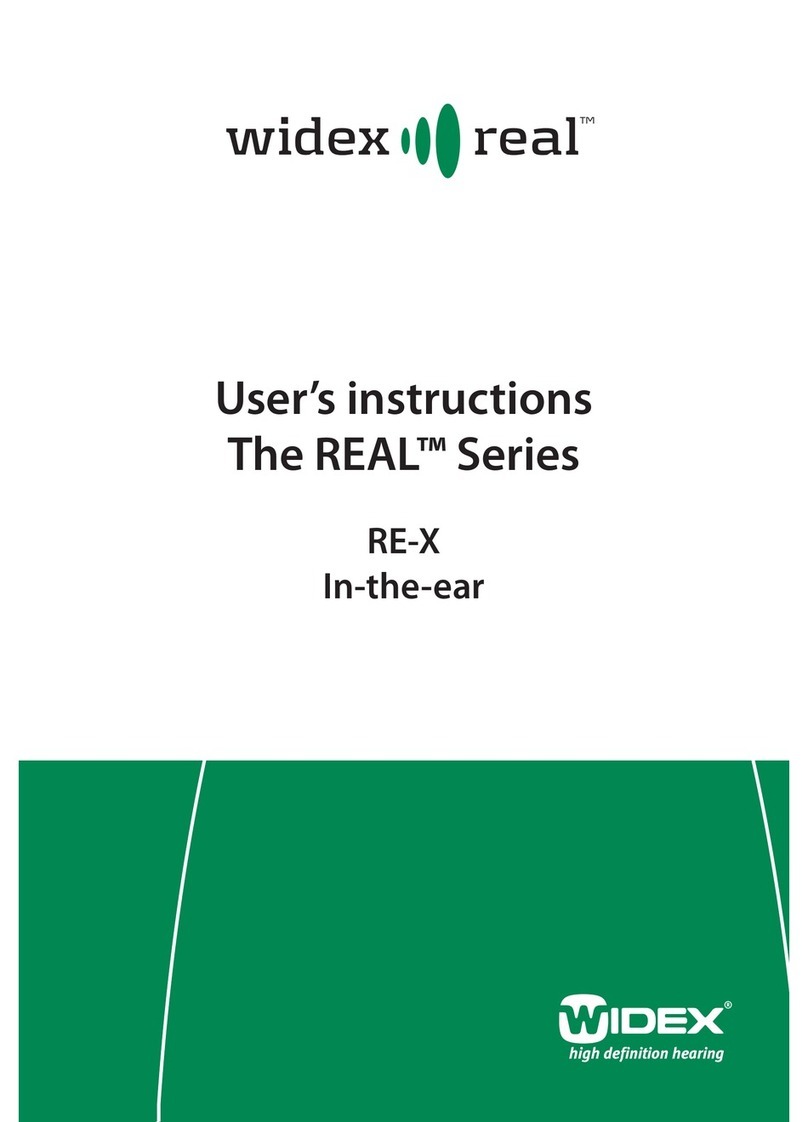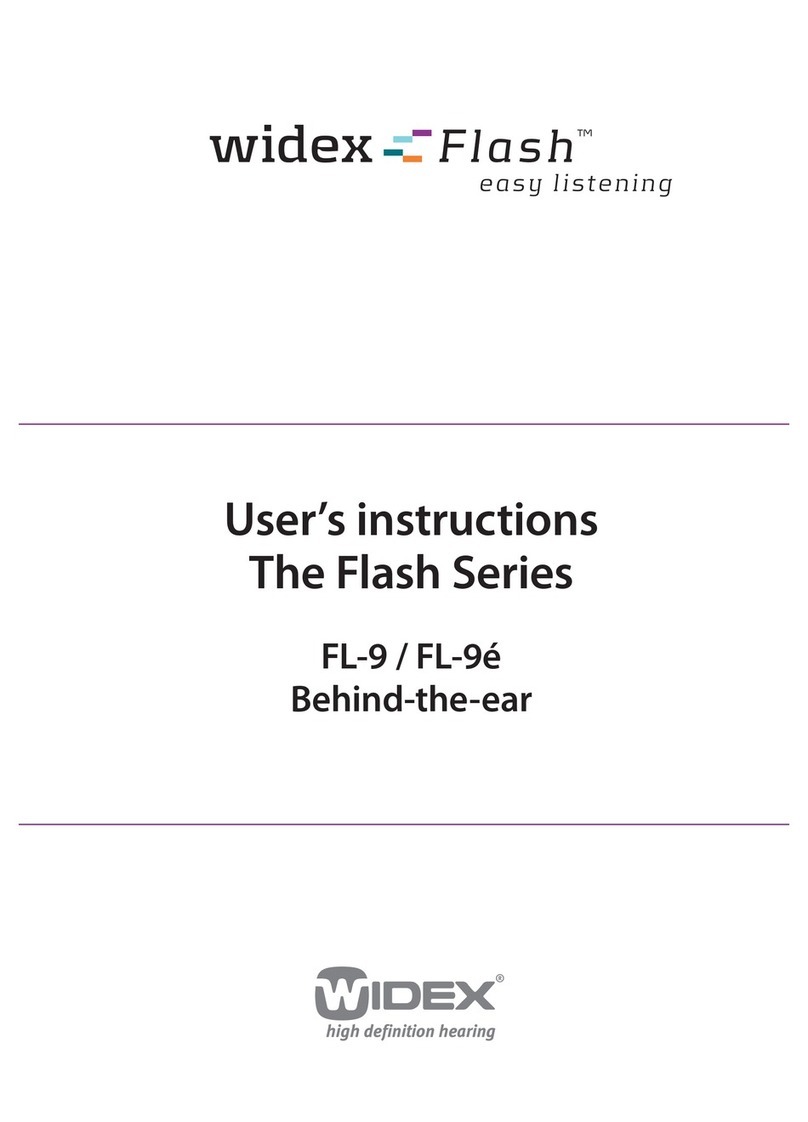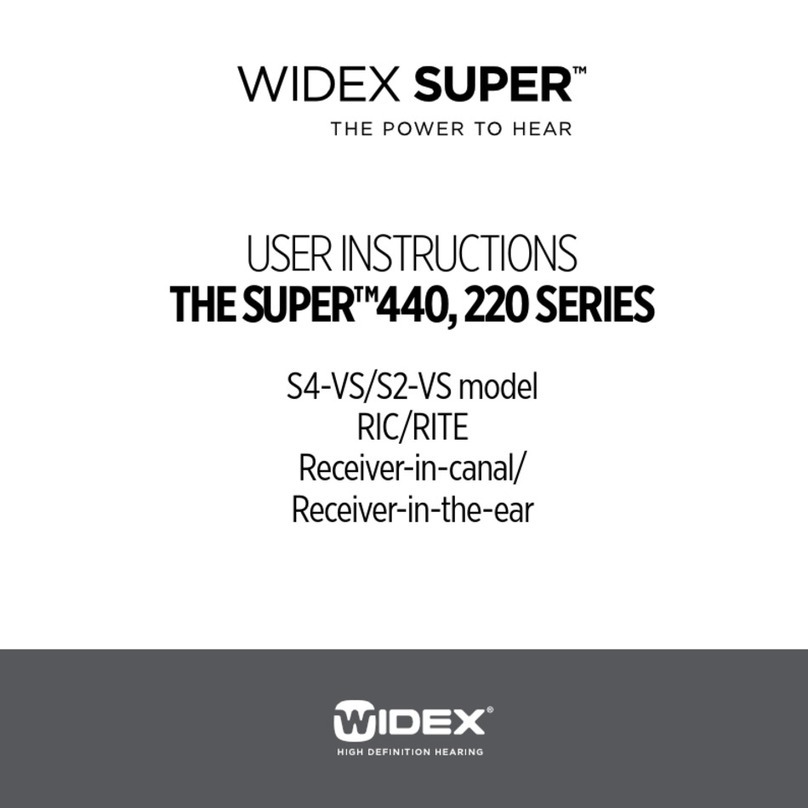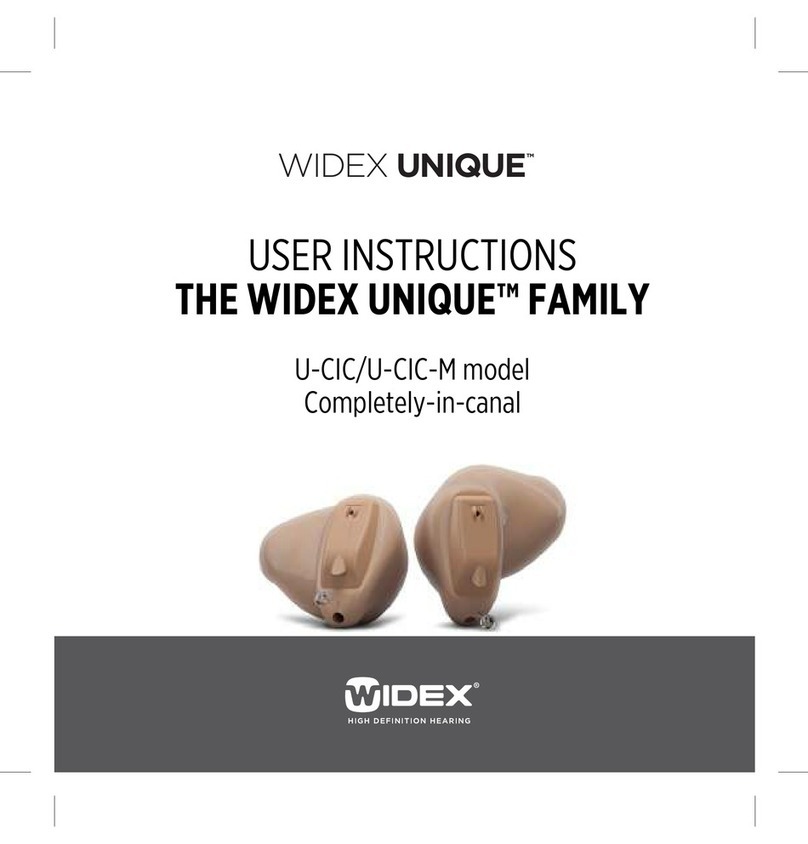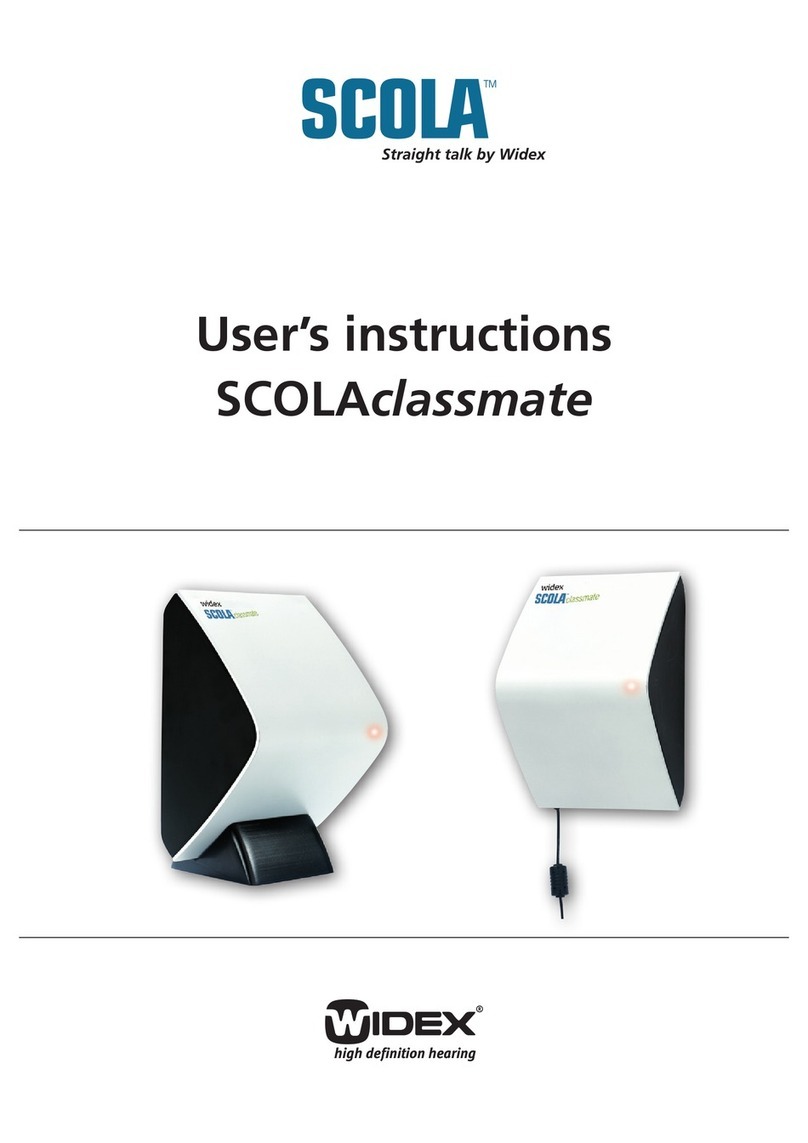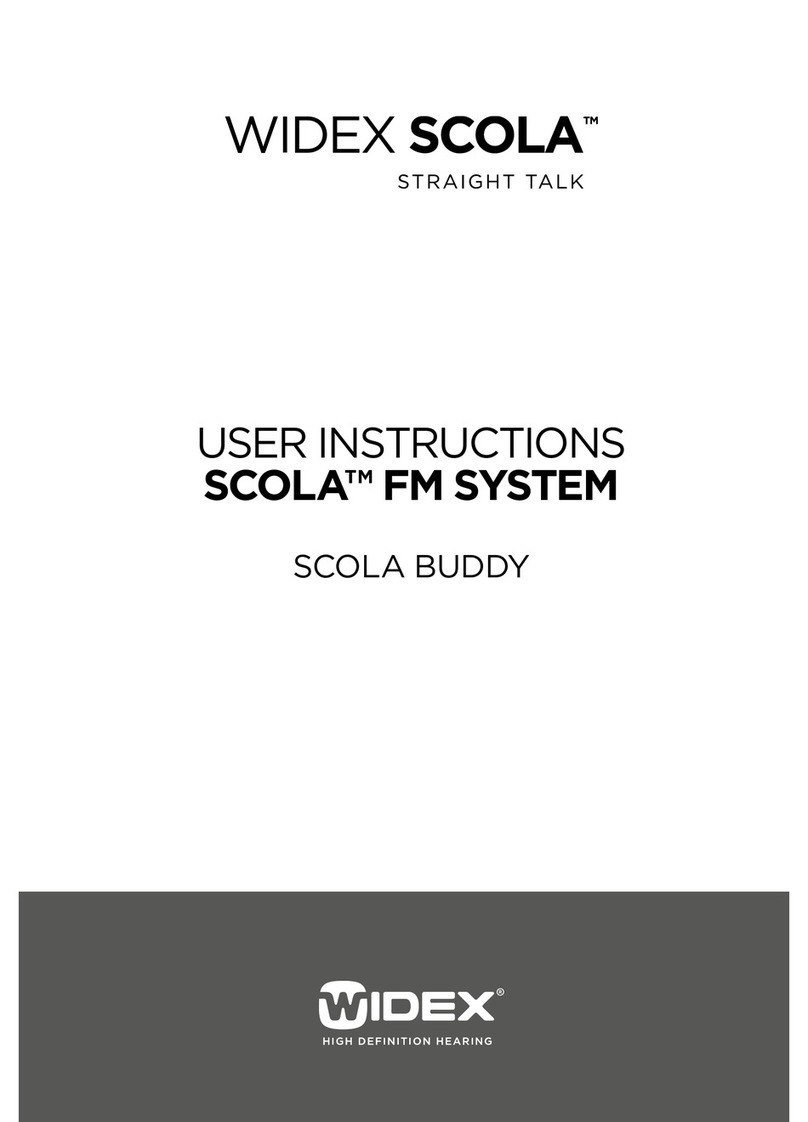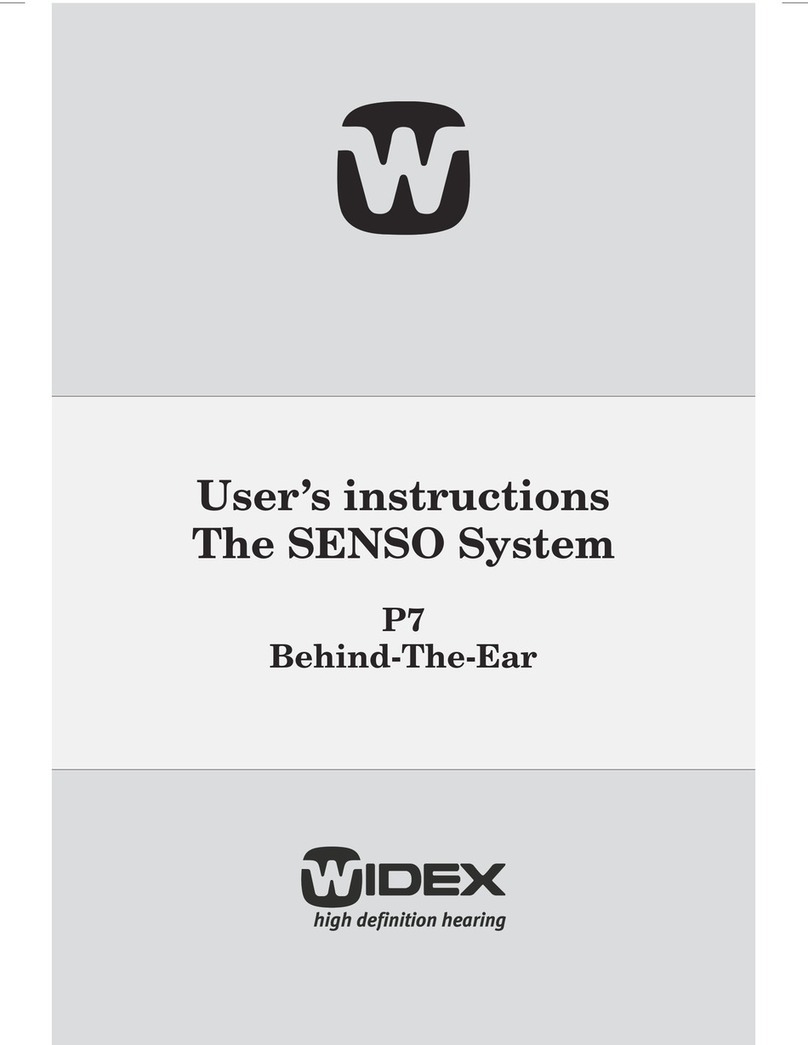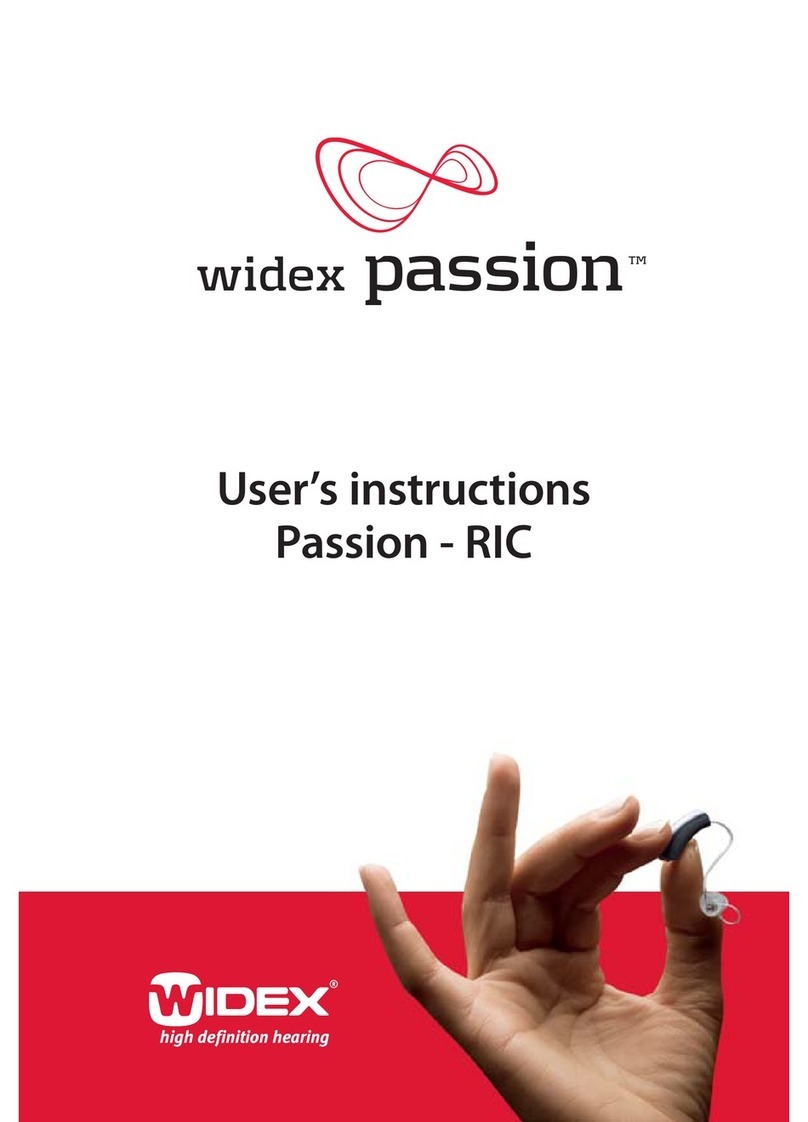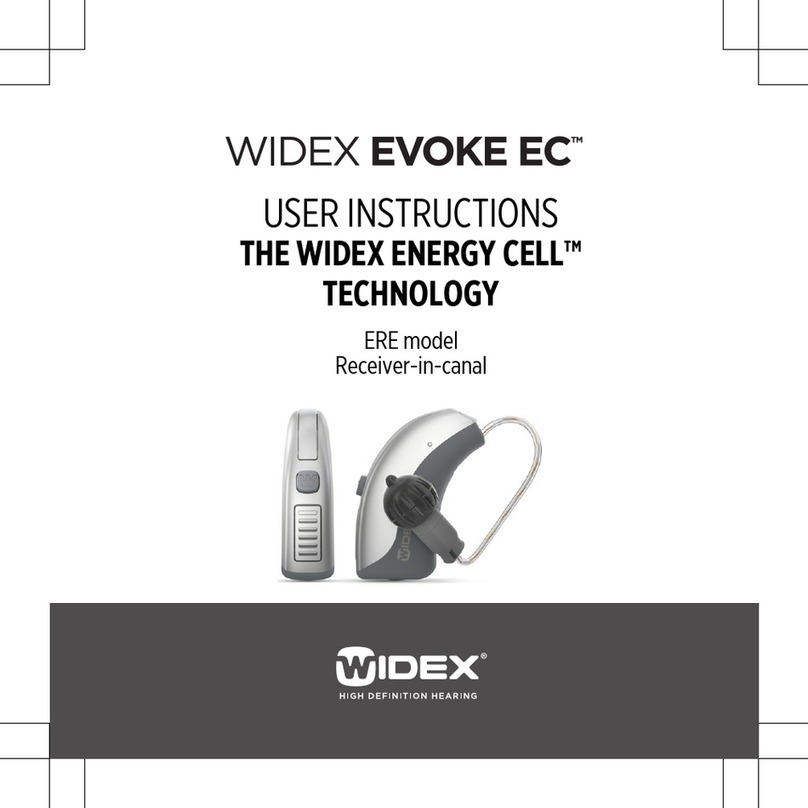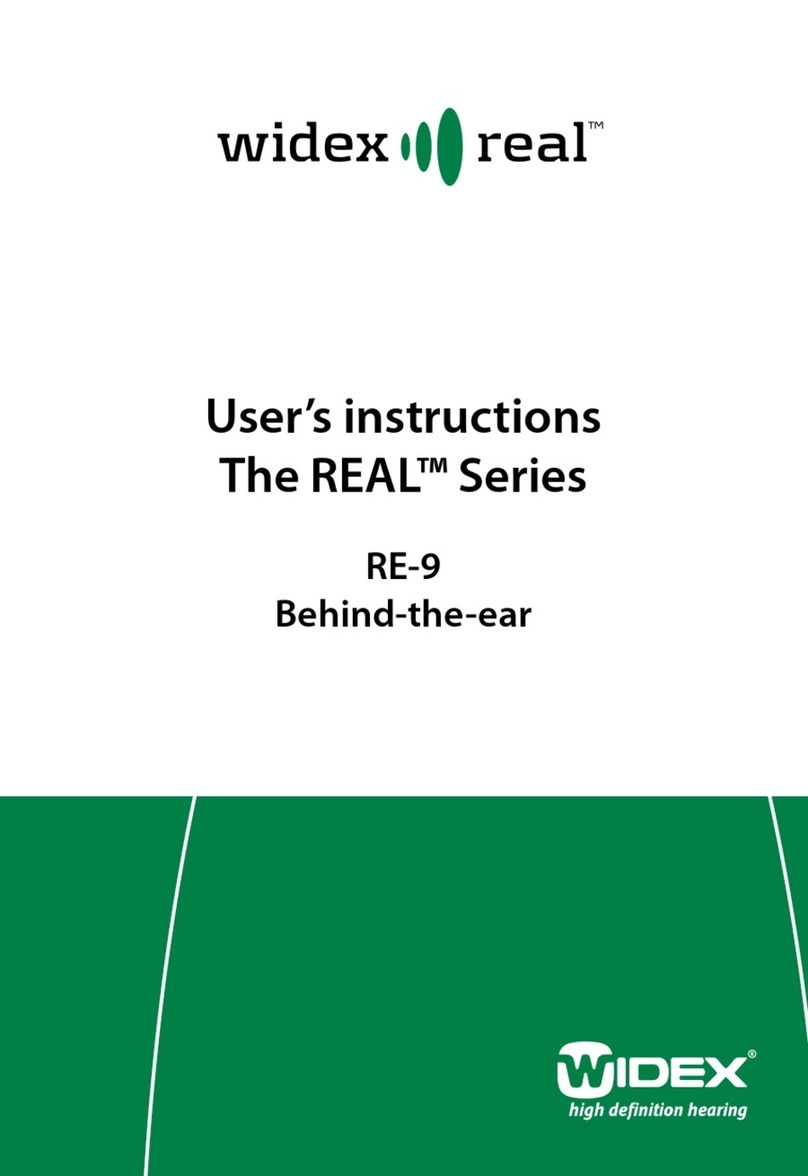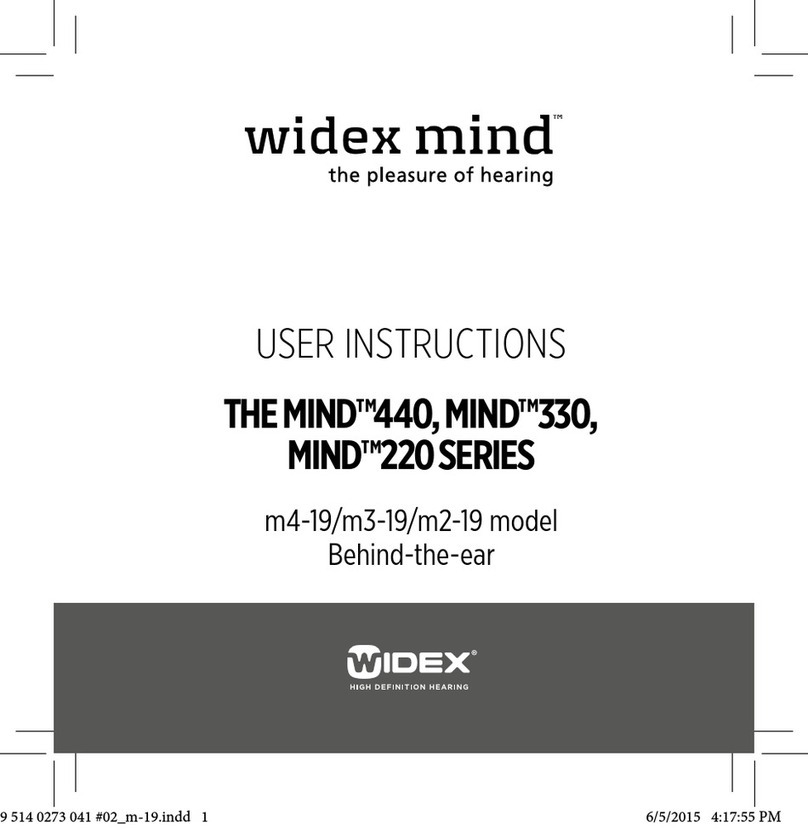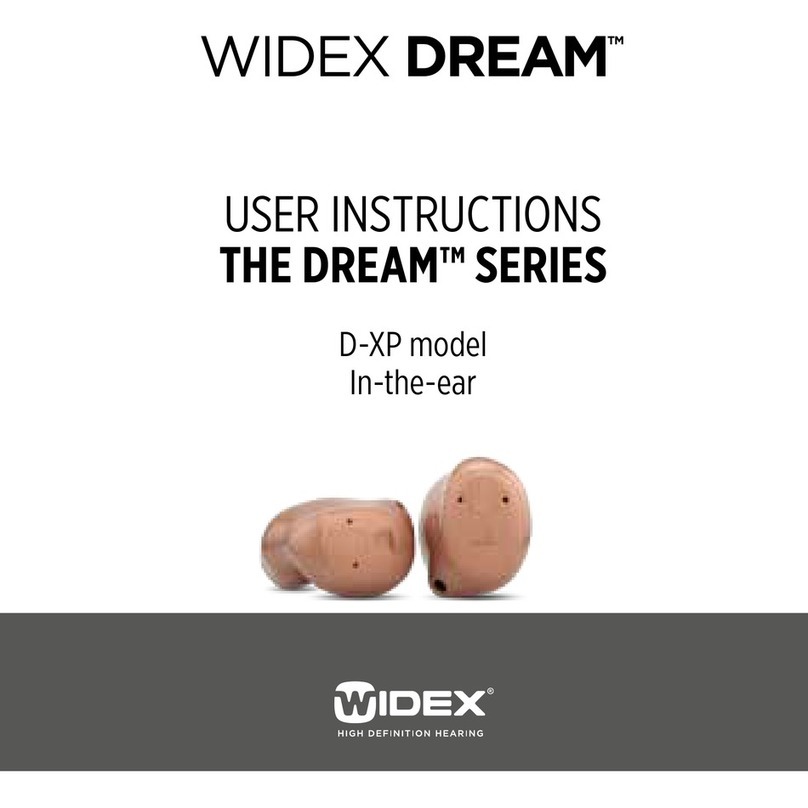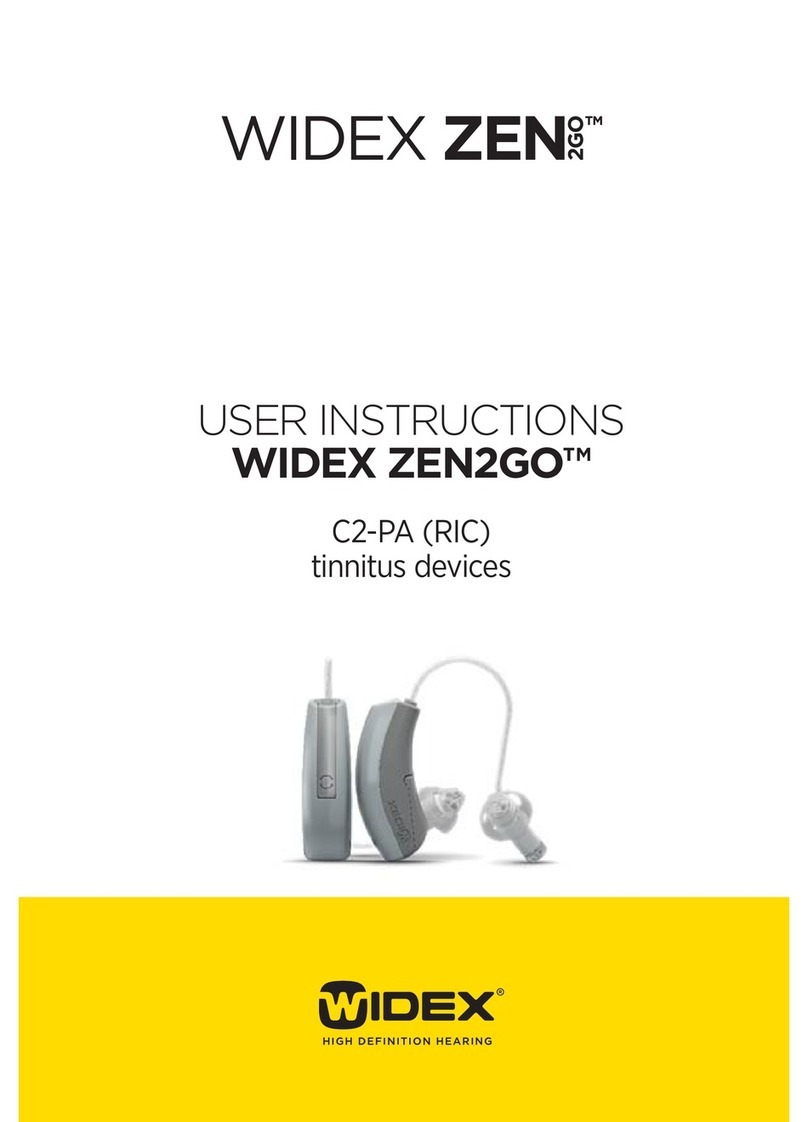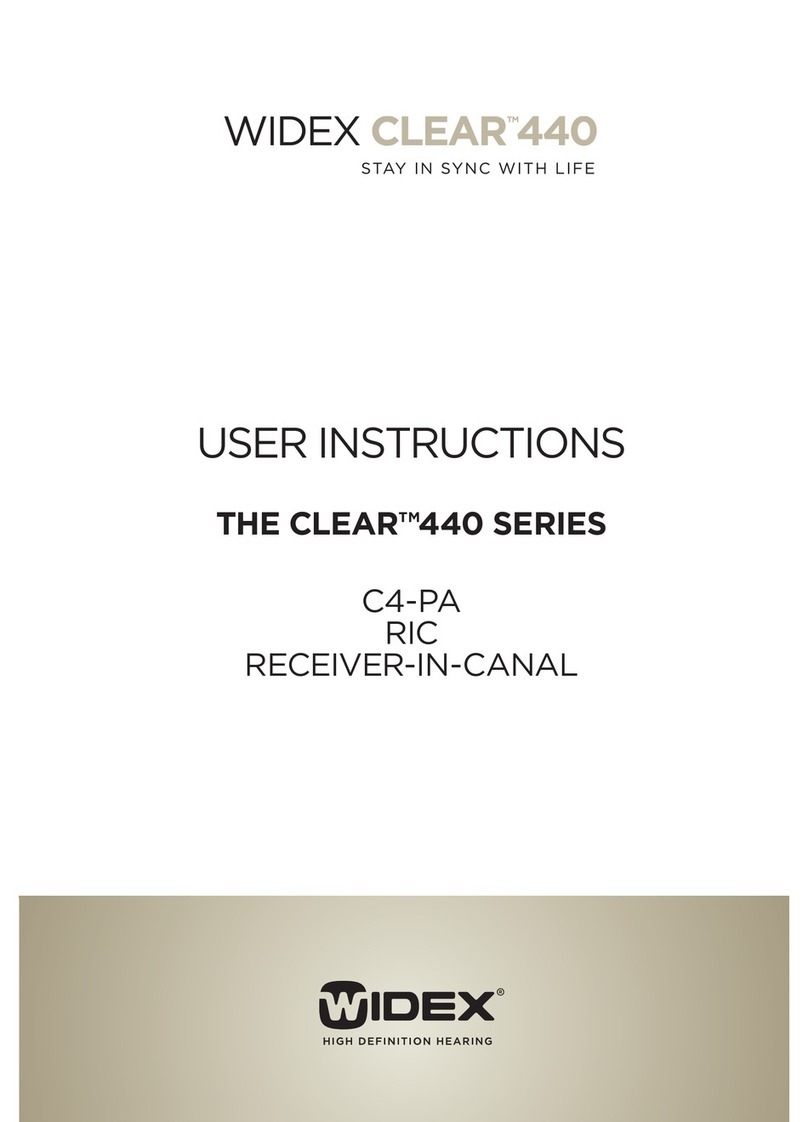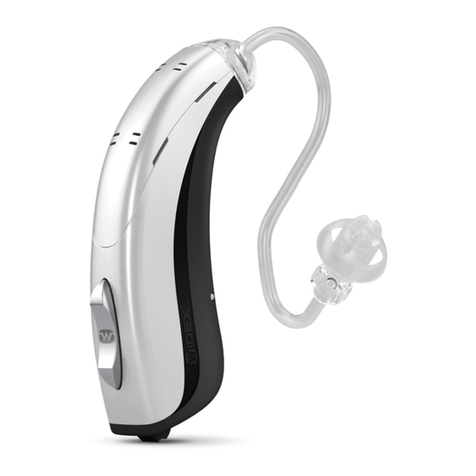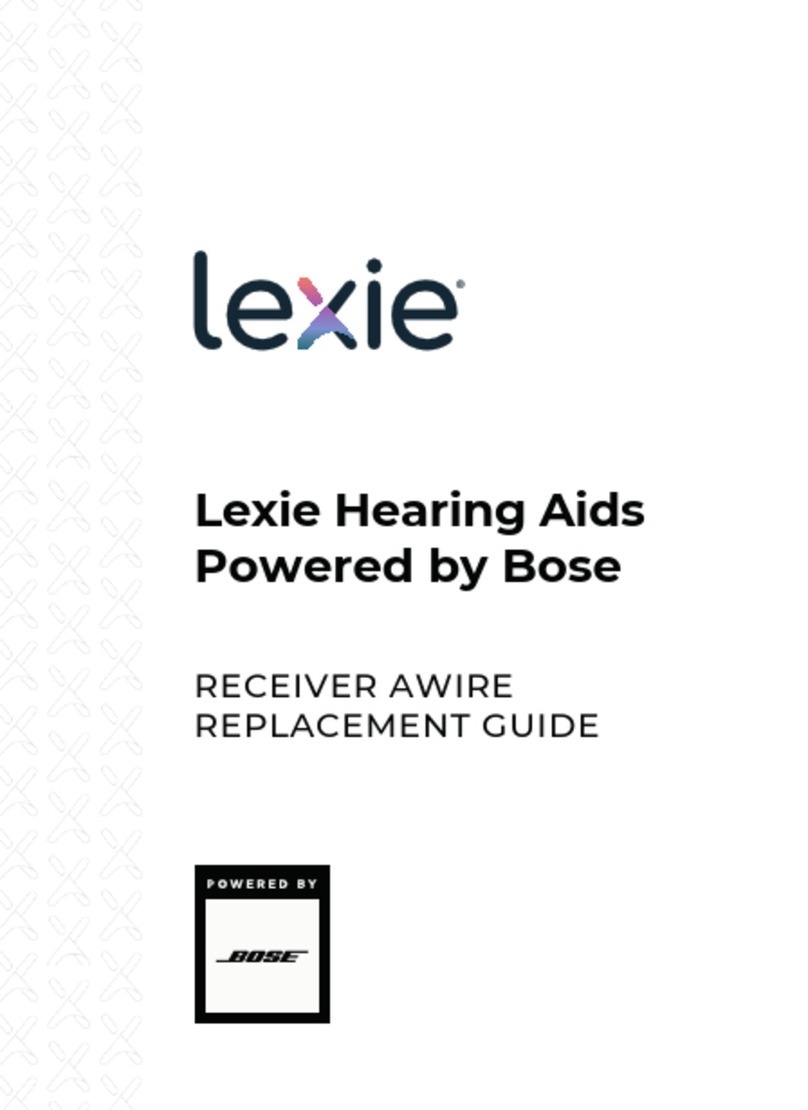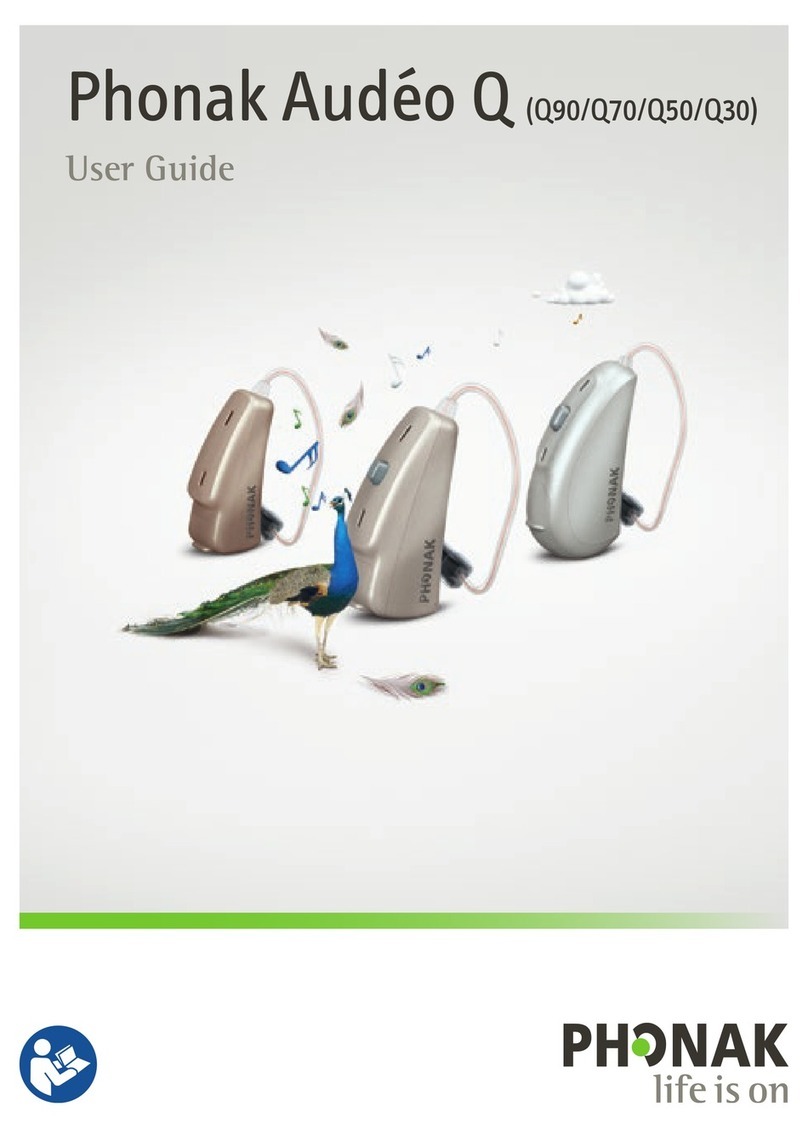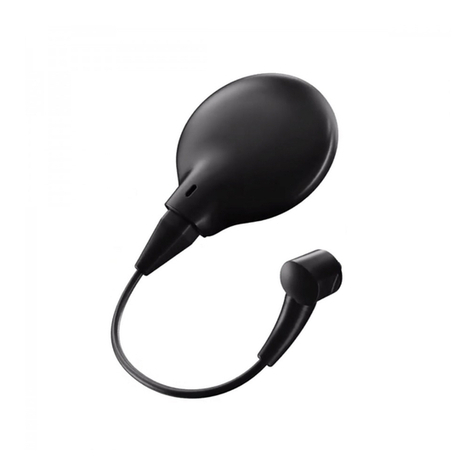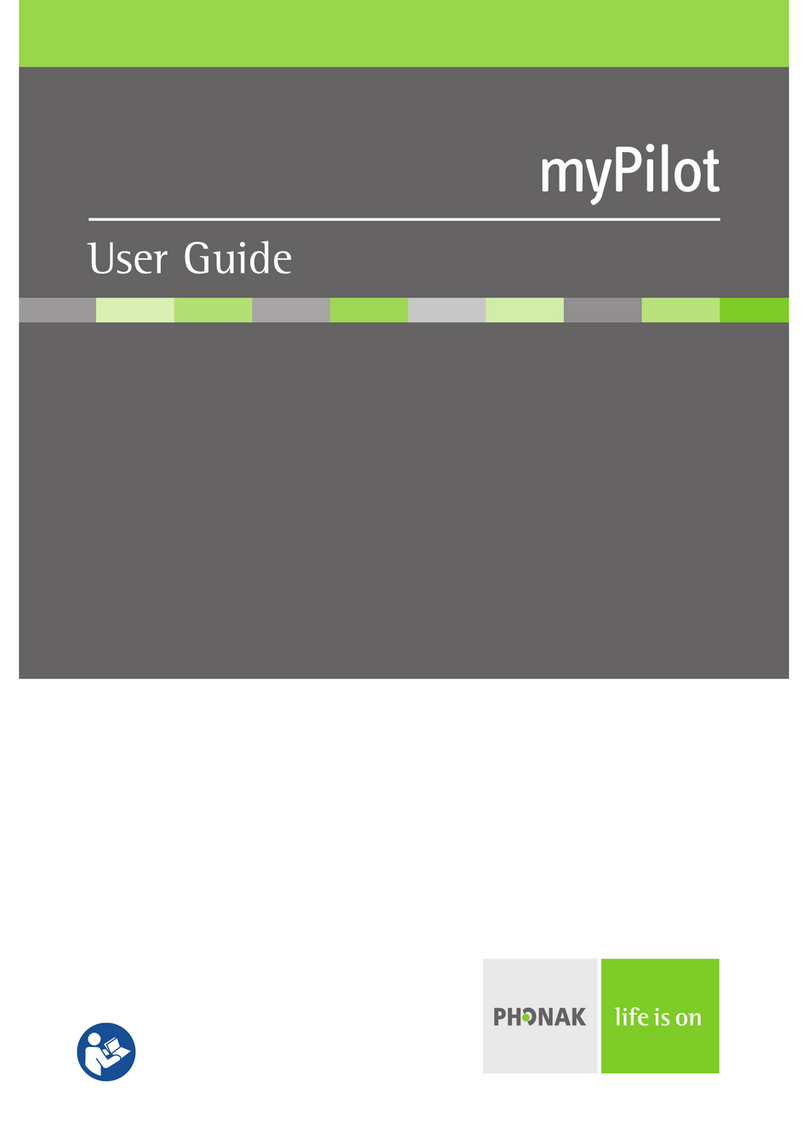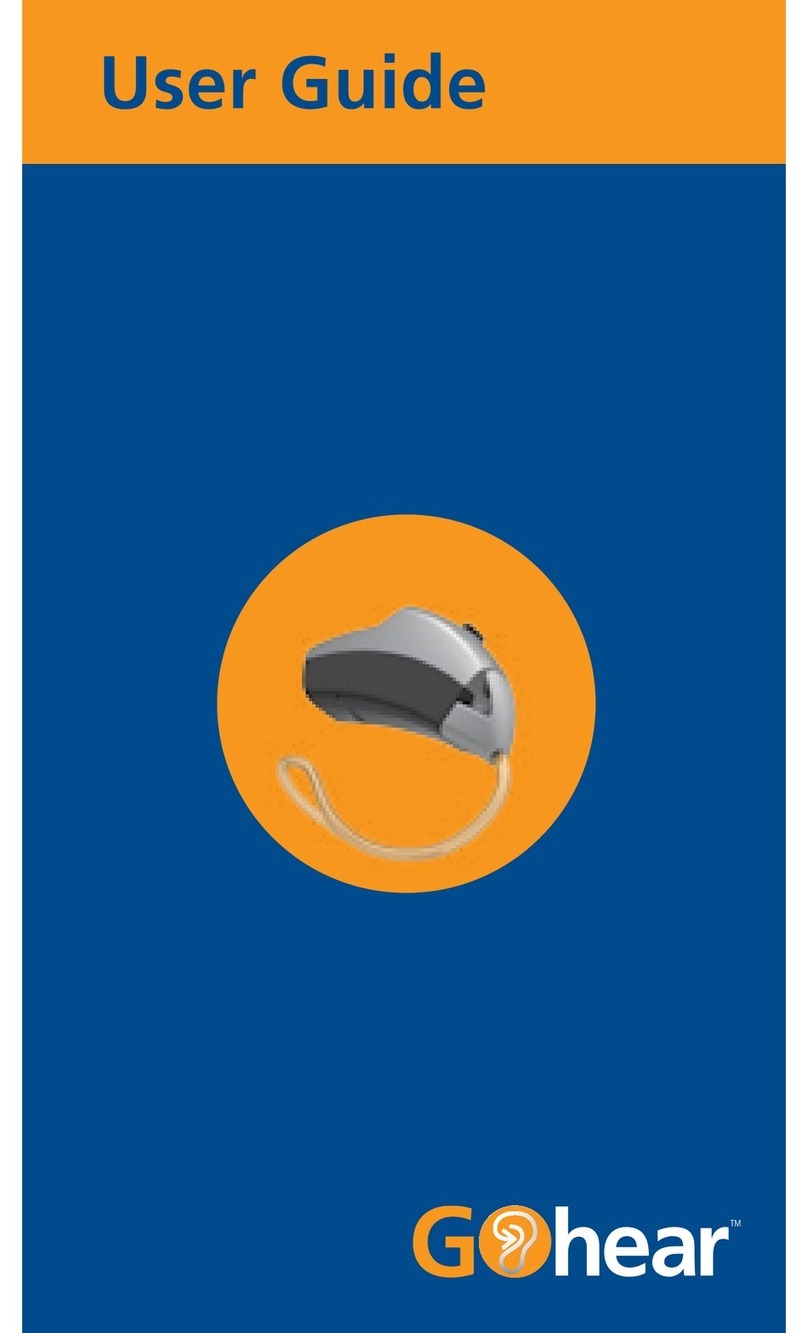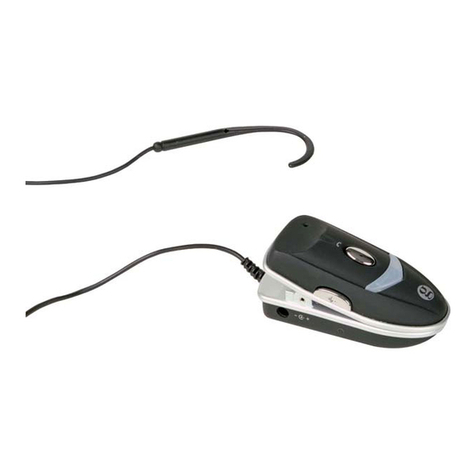
Important
Please be sure to keep your hearing aid and its
accessories out of the reach of children, who might
place them in their mouths.
Also keep batteries out of children’s reach and
discard used batteries carefully.
Do not change batteries in front of children or let
them see where you keep your supply.
Never put batteries in your mouth for any reason
and never let a child obtain a battery or place it in
his or her mouth.
In case of ingestion, contact your physician imme-
diately.
The hearing aid is made of modern non-allergen-
ic materials. Still, in rare cases skin irritation can
occur. If you notice skin irritation in or around
your ear or ear canal, contact your hearing health-
care professional.
The use of hearing aids increases the risk of accu-
mulation of earwax, which can temporarily re-
duce your hearing ability. Contact your ENT doc-
tor if you suspect that a plug of earwax has accu-
mulated in your ear.
Please be aware that the use of any type of ear-
mould may involve a slightly increased risk of in-
fection in the ear canal. An infection can arise as
a result of inadequate ventilation of the ear or
scratches in the ear canal caused by the ear-
mould. Therefore, we recommend that you take
off your earmould at night to allow the ear canal
to be ventilated. Make sure that you clean and in-
spect your earmould as required. If an infection
occurs it is a good idea to clean your earmould
with a disinfecting tissue or the like. Do not un-
der any circumstances use alcohol, chlorine or
similar substances to clean your earmould.
When not in use
When your hearing aid is not in use, it should be
placed in the small case, which you can easily car-
ry in a pocket or purse.
Never expose the hearing aid to excessive heat,
such as leaving it on a window sill, near a radia-
tor or near a car window.
